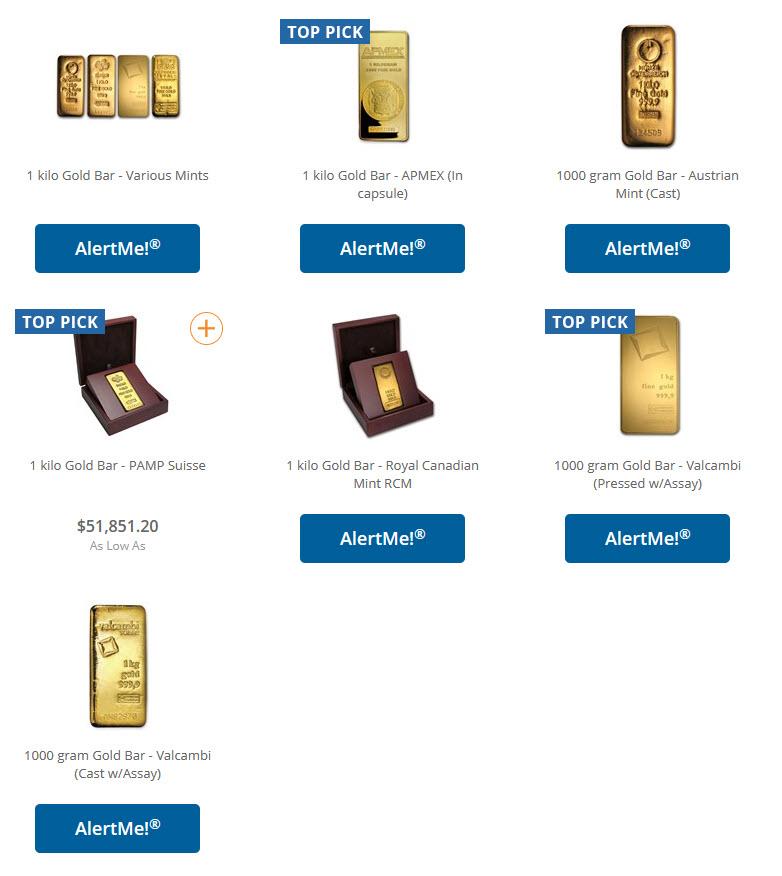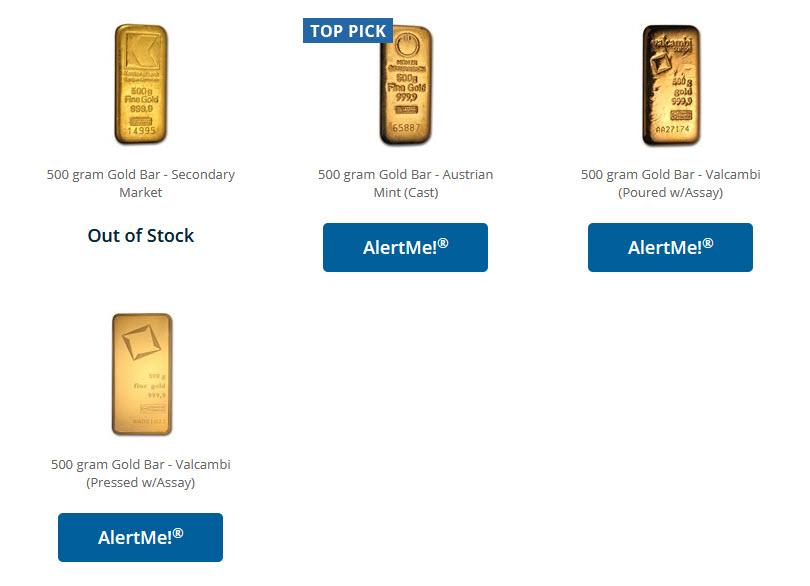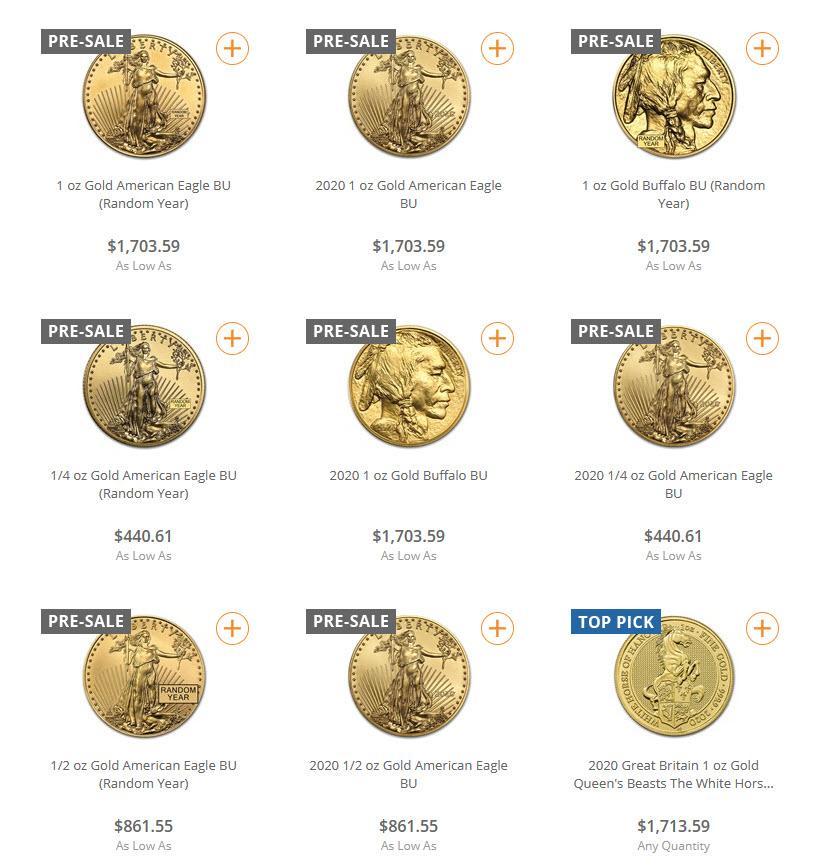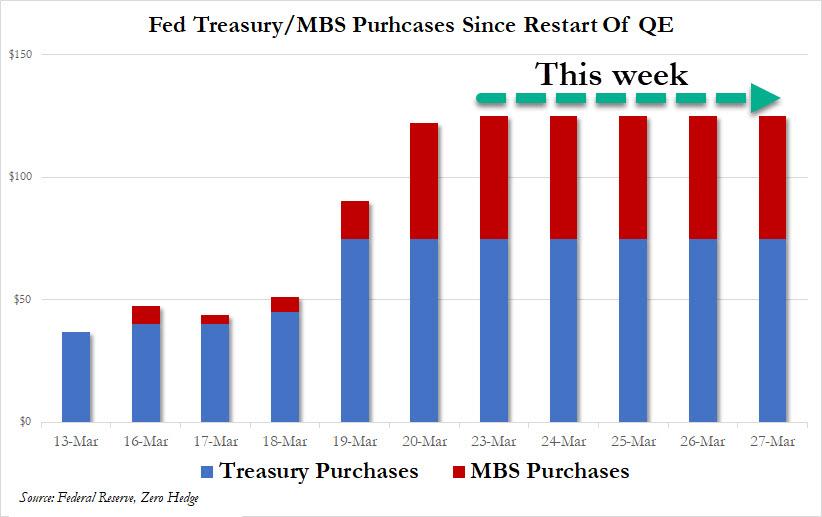(Et, ouais, c'est comme ça, l'or ou l'argent papier, c'est de la pisse d'âne ! note de rené)
"It's Selling Like Toilet Paper": If You Haven't Bought Physical Gold Yet, It's Probably Too Late
Over the past decade, one of the most fascinating observations in the world of precious metals has been the bizarre decoupling in the supply/demand dynamics and thus pricing, between paper and physical gold.
As gold became increasingly financialized in recent years - through futures, ETFs, derivatives and so on - and as the impact of "financialized" gold became the dominant price-setting factor in a world where the nominal volume of "paper gold" traded is now orders of magnitude greater than "physical", a bizarre decoupling emerges every time there is a major market stress event. A pattern that has emerged is that during periods of "bathwater" liquidation, when levered asset managers are forced to dump paper gold to cover margin calls in different parts of their book, sending the price of gold sharply lower also happens to be when physical gold buyers step up amid concerns over the viability of either the financial system and/or the reserve currency.
The result, as discussed last week, is that "the price of physical gold decouples from paper gold" resulting in an arbitrage that physical gold buyers, i.e., those who don't have faith in gold ETFs such as the GDX or simply prefer to have possession of the metal, find especially delightful as it allows them to buy physical gold at lower prices than they would ordinarily have access to.
The immediate next step is a surge in demand for physical gold that results in precious metal vendors and exchanges becoming sold out in very short notices. Take for example the largest US precious metals exchange, APMEX, where any attempt to buy gold in size, or rather weight (because the truly rich who need to park several millions can't be bothered with individual gold coins and instead go for the 400 oz brick or 1 kilo bar), finds, well, nothing because everything is sold out, and not just for bars...
... but also smaller gold rounds.
... and even plain vanilla gold coins are now only available for pre-sale.
But don't take our word for it: as that beacon of pro-fiat, anti-hard money dogma, the Financial Times, reports this morning, traders have reported and lamented a growing global shortage of gold bars, as the coronavirus outbreak both disrupts supply and stokes demand, "with one business comparing the frenzied buying of the yellow metal with the consumer rush for toilet roll."
Of course, the fact that gold makes for very expensive toilet paper and is thus available to a far more exclusive audience, one that can spend substantially more on the yellow metal, was lost on the FT, so here's the recap: there is a wholesale flight out of "paper" and into physical among some of the world's richest people.
One thing the FT does get right is that "retail investors in Europe and the US have bought up gold and silver bars and coins over the past two weeks in an effort to protect their money from the collapse in global stock prices and many currencies." And with the Fed now set to unleash unprecedented dollar destruction by injecting over $625 billion in freshly printed fiat into the system this week alone...
... concerns about the collapse of currencies will only grow.
But what is more concerning is that it's not just a demand problem: supply chains are also freezing, and Europe’s largest gold refineries have struggled to keep up because of the region’s widening shutdown. Valcambi, Pamp and Argor-Heraeus are all based in the Swiss town of Ticino, near the border with Italy. Local authorities announced in recent days that production in the area was to be temporarily halted.
Unfortunately, just like everything else, gold refiners are also shutting down, ensuring that any gold shortages will persist for months at least.
Just heard the same from another major Swiss refinery - they are also closing the plant due to the virus.
21 people are talking about this
CLARIFICATION: One Swiss refinery is near the Italian border and is offline, the other is in the center of Switzerland and will take orders for which one must pay upfront but since they are fully booked for four weeks, there is no visibility on delivery timing. #counterpartyrisk
See Simon Mikhailovich's other Tweets
With supply collapsing and demand soaring, one would hardly think that the price of gold would plunge, and yet that's precisely what happened much of last week as funds dumped paper gold, leading to the abovementioned paradoxical divergence in paper and physical prices.
And since gold vendors are constrained by the price of spot which is largely determine in the paper market, the result is that retailers are reporting shortages and delays of up to 15 days on shipments as demand has surged. Markus Krall, chief executive of German precious metals retailer Degussa, said it was struggling to meet customer appetite for gold bars and coins and had to turn to the wholesale markets. Demand is running at up to five times the normal daily amount, he said.
“We are being creative to find new sources but what is driving it all are the measures by authorities to stop coronavirus. This is so unpredictable,” added Mr Krall.
Rob Halliday-Stein, founder and managing director of Birmingham-based BullionbyPost, said the situation was unprecedented. “Basically we’re selling as soon as we get stock on location in secure vaults — but we’re restricted to what we can get hold of, it’s a bit like toilet roll.”
Another irony: while London’s gold vaults are full of gold bars, they are of the 400-ounce "good delivery" variety traded (and rehypothecated) among large banks (and central banks) such as HSBC and JPMorgan, not the smaller bars that retail customers buy, which tend to be 1kg (35 ounces) or lighter.
"I don’t think you will find a kilobar presently in Europe and the US for love nor money,” Ross Norman, a veteran gold trader, said. "It’s quite extraordinary."
And speaking of Apmex, its CEO Ken Lewis told the FT that in the past week that “product has become increasingly difficult to source as the market becomes more volatile day by day”.
The company said it had purchased more than 1m ounces of silver grain and bars, more than 20,000 American Gold Eagles coins, thousands of gold bars, and “anything else we can find utilising our many partners and mint relationships”.
And all of that gets sold out the moment it becomes available for sale.
JM Bullion, another US-based precious metals retailer, said customer orders would be delayed by 15 days, and introduced a minimum order size (as did Apmex).
BullionStar, a Singapore-based precious metals retailer, said it is paying a premium to buy back silver and gold coins from customers in an effort to replenish supplies, according to Ronan Manly, one of its analysts. “There’s a disconnect between prices in the physical gold market and the prices you see on your screen,” he said, repeating precisely what he wrote here several days ago.





Aucun commentaire:
Enregistrer un commentaire